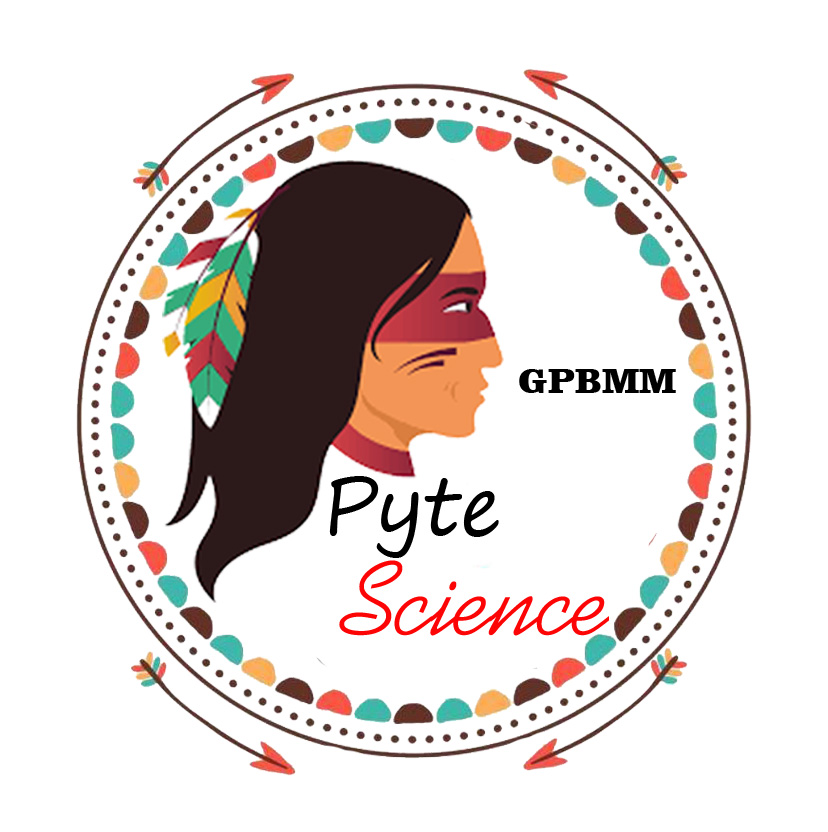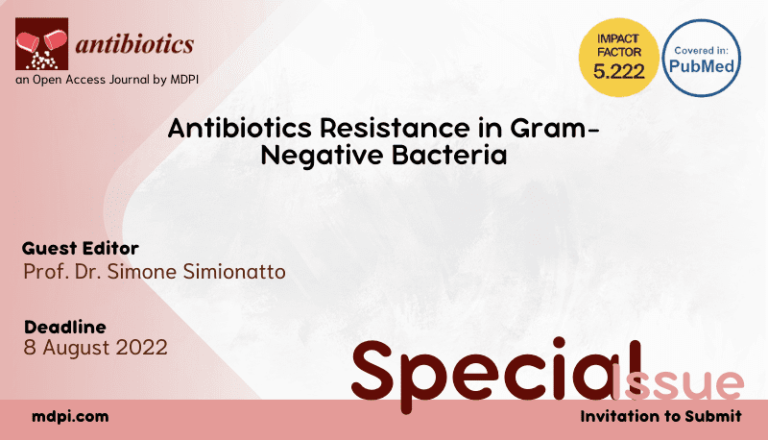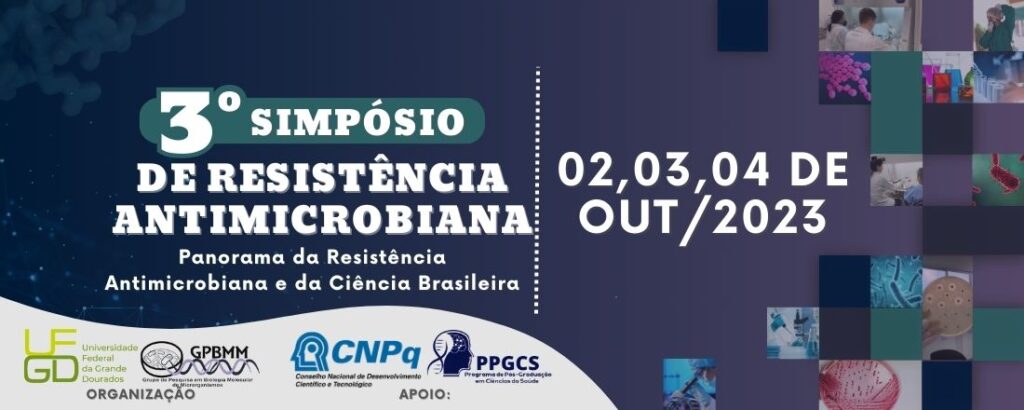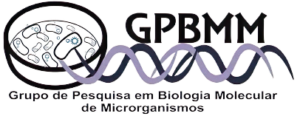O uso desenfreado de drogas como antibióticos resultou no surgimento de bactérias multirresistentes (MDR), que é um dos principais problemas de saúde pública desafiadores do século XXI. Esses grupos de microrganismos tornaram-se endêmicos em muitas unidades de saúde, levando a grandes surtos hospitalares. Infecções Hospitalares (IH) ou Infecções Relacionadas à Assistência à Saúde (IRAS) são grave problema de saúde pública, pois são eventos adversos associados à assistência à saúde com alta morbidade e mortalidade, repercutindo diretamente na segurança do paciente. O ambiente hospitalar é favorável à propagação de bactérias multirresistentes. Tais microrganismos possuem diversos mecanismos de resistência aos antibióticos, sendo os mais comuns: alteração na permeabilidade da membrana, produção de enzimas que hidrolisam os antibióticos e bombas de efluxo.
Estudos Realizados com Bactérias Multirresistente
- Bactérias Resistente a Carbapenêmicos
- Bactérias Resistente a Carbapenem
- Bactérias Resistente à Polimixina
- Bactérias Produtora de KPC
Pseudomonas Aeruginosa Resistente a Carbapenêmicos
Pseudomonas aeruginosa é um bacilo gram-negativo considerado um patógeno oportunista, que causa infecções no trato urinário e no sistema respiratório, bem como pneumonia associada a ventilação mecânica e agravamento dos quadros de fibrose cística. Além disso, é uma das principais causas de infecções nosocomiais, sobretudo em Unidades de Terapia Intensiva (UTI).
A produção de metalo-β-lactamases (MβL) por cepas de P. aeruginosa foi identificada como um dos mais importantes mecanismos relacionados à resistência à antibióticos beta lactâmicos, incluindo carbapenêmicos. Vários tipos de MβL foram identificados entre as cepas de P. aeruginosa, sendo os tipos IMP, VIM, SPM-1 e GIM-1 os mais relevantes clinicamente. A MβL de São Paulo (SPM-1) foi descrita em 2001 em São Paulo. Desde então, P. aeruginosa produtora de SPM-1 foi descrita em diferentes regiões do Brasil
Objetivos
O objetivo do estudo foi realizar a caracterização molecular dos mecanismos de resistência de P. aeruginosa isolada de pacientes internados em um hospital público do município de Dourados/MS
Coleta das Amostras
As cepas bacterianas de P. aeruginosa foram coletadas de amostras clínicas de pacientes internados em um hospital público de Dourados/MS. Os dados laboratoriais quanto à identificação da espécie bacteriana, coleta das amostras, ala de isolamento e amostras clínicas foram coletados a partir dos registros do laboratório de análises clínicas do hospital. Os dados clínicos dos pacientes hospitalizados durante o período do estudo foram revisados e registrados: características demográficas, histórico médico e comorbidades, internação prévia em outra instituição de saúde, ala e tempo de internação, realização de procedimentos invasivos, uso de dispositivos e exposição a antibióticos.
Métodos
A identificação das espécies bacterianas e o perfil de sensibilidade antimicrobiana foi realizada com o sistema microbiológico automatizado PhoenixTM (BD Diagnostic, Systems, Sparks, MD). A avaliação do perfil de susceptibilidade a antibióticos foi realizada através da determinação da Concentração Inibitória Mínima (CIM), pela técnica de microdiluição em caldo Mueller-Hinton, seguindo as padronizações e critérios estabelecidos pelo Clinical and Laboratory Standards Institute (CLSI) (6). As CIMs de antibióticos carbapenêmicos (imipenem e meropenem) foram testadas em diferentes faixas de concentração, de 128 a 0,125 μg/mL. As cepas foram inoculadas em microplacas de 96 poços e incubadas à 36 °C por 24 horas. Após este período, a CIM foi registrada como sendo a menor concentração de antimicrobiano que inibiu completamente o crescimento do microrganismo avaliado. As cepas de P. aeruginosa resistentes foram submetidas à extração de DNA por lise térmica
Resultados
A partir dos dados obtidos, constata-se que as principais fontes de isolados clínicos de P. aeruginosa resistentes foram das amostras de aspirado traqueal e de urocultura, o que corrobora a tendência deste patógeno de causar infecções dos tratos respiratório e urinário (4; 5). As principais alas hospitalares em que foram encontrados os isolados clínicos foram a UTI e o Posto de Saúde, locais com elevado trânsito de pacientes e funcionários do hospital, o que facilita a disseminação das cepas resistentes pelo ambiente hospitalar. Todas as amostras analisadas apresentaram resistência a imipenem e a meropenem nos testes fenotípicos realizados. Na técnica molecular de PCR, 11 cepas (30,5%) apresentaram pelo menos um gene responsável pela produção de β-lactamases, evidenciando assim seu mecanismo de resistência.
Acinetobacter Baumannii Resistente a Carbapenem
Acinetobacter baumannii é amplamente reconhecida como patógeno oportunista em clínicas médicas, com a capacidade de colonizar e infectar pacientes hospitalares
O uso generalizado e prolongado de antibióticos de amplo espectro favorece a pressão seletiva, contribuindo ao surgimento de MDR A. baumannii e restringindo o tratamento opções para pacientes infectados. O uso excessivo de colistina como último recurso à terapia pode ter contribuído para o aumento do número de A. baumannii resistente a colistina.
Objetivos
Neste estudo retrospectivo de 3 anos, investigamos a prevalência e letalidade de MDR A. baumannii isolados de pacientes internados em um hospital terciário brasileiro.
Coleta das Amostras
Pacientes com A. baumannii isolados de culturas clínicas foram incluídos no estudo. Para as taxas de infectividade e letalidade, selecionamos casos de colonização ou infecção de todos os pacientes admitidos na UTI com isolados de A. baumannii.
Métodos
Os dados clínicos dos pacientes internados no hospital foram analisados retrospectivamente. Foram registrados os seguintes dados: características demográficas, histórico médico, comorbidades, fonte de isolamento, procedimentos invasivos, ventilação mecânica, nutrição parenteral total, sonda vesical, sonda de drenagem, sonda nasogástrica, intubação traqueal, tratamento com imunossupressores e fonte de infecção. Os dados de evolução clínica (recuperação/óbito) foram avaliados.
Resultados
Foram identificados 219 isolados de Acinetobacter baumannii, dos quais 70,8% (155/219) foram isolados de pacientes internados em unidades de terapia intensiva. Destes, 57,4% (n = 89/155) foram avaliados, dos quais 92,1% (82/89) eram resistentes aos carbapenêmicos, e 49 foram classificados como infectados. A letalidade foi de 79,6% (39/49).
Klebsiella Pneumoniae Resistente à Polimixina
O gênero Klebsiella pertencente à família Enterobacteriaceae é considerado pela Organização Mundial de Saúde (OMS) um patógeno com prioridade crítica no desenvolvimento de novas estratégias terapêuticas, pois infecções graves são comuns em pacientes internados, com envolvimento de cepas multirresistentes.
Objetivos
Objetivo. No presente estudo exploramos o uso de nitrato de gálio frente a isolados de Klebsiella pneumoniae resistentes à polimixina B que apresentam características formadoras de biofilme.
Coleta das Amostras
Foram utilizados dois isolados clínicos de Klebsiella pneumoniae resistentes à polimixina B formadores de biofilme.
Métodos
A inibição da formação de biofilme foi avaliada por método preconizados pelo CLSI. As placas foram incubadas por 24 horas a 37 °C em condições estáticas para permitir o crescimento bacteriano e a maturação do biofilme. O crescimento bacteriano foi quantificado usando um espectrógrafo de Microplato (BioTek Instruments Inc., Winooski, VT, USA) em um comprimento de onda de 600nm. O biofilme foi determinado utilizando a solução de cristal violeta (CV) à 0.1%. A inibição de biofilme foi calculada em relação à quantidade de biofilme cultivada na ausência de nitrato de gálio (definido como 100% biofilme) e ao controle de esterilidade do meio (definido como 0% biofilme).
Resultados
Os biofilmes foram avaliados em diversas concentrações do nitrato de gálio que variaram de 0.5 a 16 μg/mL. O nitrato de gálio apresentou atividade antibiofilme significativa frente à isolados clínicos de K. pneumoniae resistentes a polimixina B revelando sua melhor atividade na concentração de 16 μg/mL.
Klebsiella Pneumoniae Produtora de KPC
As cepas de klebsiella pneumoniae resistentes ao carbapenem são causas frequentes de infecções associadas à saúde e surtos associados ao hospital. A resistência ao carbapenem nesses patógenos é uma das principais causas de morbidade e mortalidade, e representa um grave problema de saúde em todo o mundo, uma vez que limita as opções terapêuticas para o tratamento de infecções
Objetivos
O objetivo deste estudo foi determinar a atividade antimicrobiana do carvacrol contra k . pneumoniae.
Coleta das Amostras
As cepas bacterianas de P. aeruginosa foram coletadas de amostras clínicas de pacientes internados em um hospital público de Dourados/MS. Os dados laboratoriais quanto à identificação da espécie bacteriana, coleta das amostras, ala de isolamento e amostras clínicas foram coletados a partir dos registros do laboratório de análises clínicas do hospital. Os dados clínicos dos pacientes hospitalizados durante o período do estudo foram revisados e registrados: características demográficas, histórico médico e comorbidades, internação prévia em outra instituição de saúde, ala e tempo de internação, realização de procedimentos invasivos, uso de dispositivos e exposição a antibióticos.
Métodos
Produção de carbapenemase foi detectada pelo MALDI-TOF. O PCR e sequenciamento mostrou que a blaKPC-2, BlaOXA 48, blaNDM-1, blaCTX-M-8 genes estavam presentes em K resistente ao carbapenem. cepas pneumoniae. O K resistente à polimíxina. pneumoniae strain exibiu alterações no gene mgrB. A atividade antimicrobiana do carvacrol foi avaliada in vitro utilizando métodos de microdilução de caldo e de morte por tempo. Para isso, k resistente ao carbapenem. foram avaliadas cepas resistentes à pneumoniae e polimíxi em polimíxi.
Resultados
Os resultados in vitro mostraram que o carvacrol tinha atividade antimicrobiana contra todos os isolados avaliados. As curvas de sobrevivência mostraram que o carvacrol erradicou todas as células bacterianas dentro de 4h. O efeito antimicrobiano do carvacrol in vivo foi determinado usando um modelo de infecção por camundongos com Klebsiella pneumoniae carbapenemase (KPC). O tratamento com carvacrol esteve associado ao aumento da sobrevida e redução significativa da carga bacteriana na lavagem peritoneal. Além disso, os grupos tratados com carvacrol, apresentaram redução significativa no número total de células brancas e aumento significativo das plaquetas quando comparados ao grupo não tratado
Leia na Integra a Edição Especial: Antibiotics Resistance in Gram-Negative Bacteria
Dear Collegues,
Antimicrobial resistance has been recognized as one of the most serious global threats to human health. The ability of Gram-negative bacteria to acquire resistance to antimicrobials via horizontal gene transfer and mutation is a real threat to and burden on the health and economy. Even though they are most commonly detected in hospital settings, multidrug-resistant Gram-Negative bacteria have also been described in other ecological niches. The epidemiology of Gram-negative bacteria is complex, and the importance of an integrated surveillance system based on the One Health approach has been widely recognized. The use of antimicrobials in medicine, agriculture, and livestock has favored the selection of these pathogens. Additionally, increases in hospitalization and the indiscriminate use of antimicrobials during the COVID-19 pandemic may have contributed to increased rates of multidrug-resistant Gram-negative bacteria. Thus, the effects of antimicrobial resistance in public health and in the economy in the short and medium term are enormous. Efforts must focus on implementing new policies and control programs on how to use and dispense antibiotics. Furthermore, understanding resistance mechanisms and epidemiology is critical for the development of the novel antibacterial products needed to meet future demands. This Special Issue invites manuscript submissions that further our understanding of antimicrobial resistance in Gram-negative bacteria. Submissions on the search for new drugs developed through structural modification agents, production of synthetic derivatives, or repositioning are especially encouraged.
Projeto em Desenvolvimento
O impacto da pandemia da COVID-19 na incidência de microrganismos multidroga-resistentes
A resistência antimicrobiana é considerada uma grave ameaça global à saúde humana no século XXI, as infecções causadas por microrganismos multirresistentes (MDR) são associadas ao aumento das taxas de morbimortalidade.
Sem intervenções, esta taxa de mortalidade foi projetada para atingir 10 milhões de mortes anualmente até 2050, ou seja, mais que o dobro de mortes causadas pela pandemia da COVID-19. Uma das preocupações é o uso extensivo e inadequado de antimicrobianos no tratamento de pacientes com COVID-19 em estado crítico. Apesar destes dados, até o momento, nenhuma intervenção de manejo antimicrobiano foi descrita para COVID-19.
Objetivos Gerais
Portanto, compreender a proporção de pacientes com COVID-19 com coinfecção bacteriana, bem como os microrganismos envolvidos é crucial para o tratamento destes pacientes, contribuindo para minimizar as consequências negativas do uso excessivo de antimicrobianos. Além disso, esse conhecimento pode ter um impacto significativo no refinamento das diretrizes empíricas de manejo de antibióticos para pacientes com COVID-19.
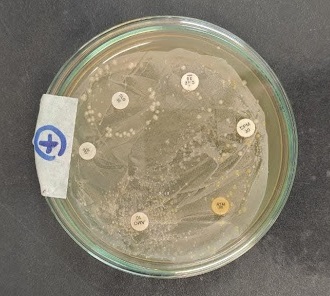
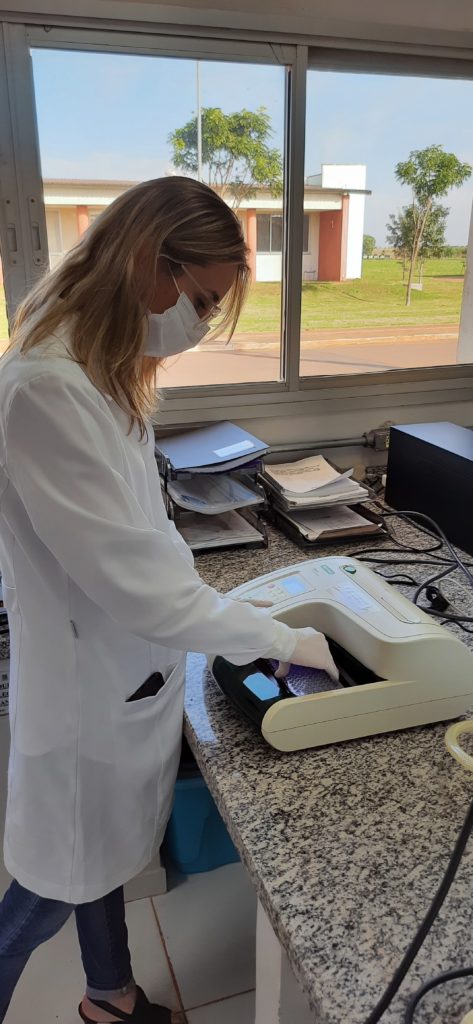
Eventos Realizados
Menu
Rodovia Dourados – Itahum, Km 12 – Cidade Universitária
(Atrás da piscina)
Dourados, MS
Brasil
